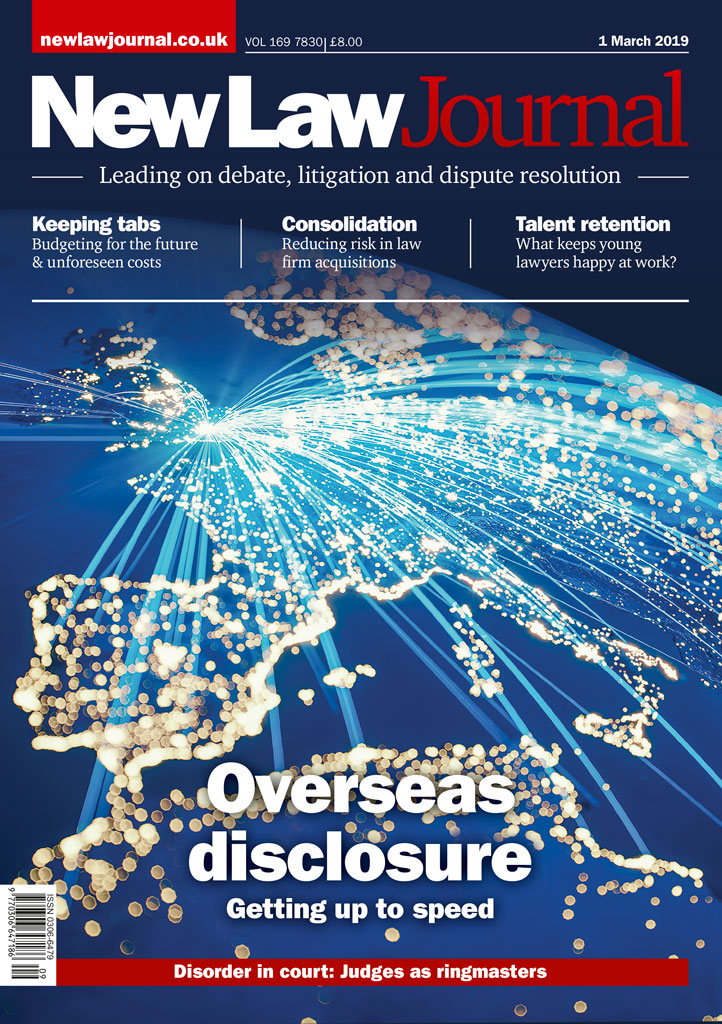
If electronic data is stored overseas, how can an investigator compel its disclosure in the UK? The Crime (Overseas Production Orders) Act 2019 now provides a new solution, as Andrew Smith explains
In the wake of the home secretary’s approval of revised rules on conferring by police officers in writing up their post-event accounts, David Wolchover & Anthony Heaton-Armstrong return to the issues at the heart of the debate
Unforeseen costs can be unavoidable, but amending a budget upwards is no easy task, as Patrick Allen & Riffat Yaqub explain
Law firms which subscribe to common misconceptions about the millennial generation are missing a trick, says Matthew Kay
Joanne Cracknell & Jonathan Angell discuss the best strategies for reducing risk in law firm acquisitions
Many a day in court is akin to a circus, & it’s up to the judge to be the ringmaster, says Dominic Regan
MOVERS & SHAKERS

NLJ Career Profile: Ken Fowlie, Stowe Family Law
Ken Fowlie, chairman of Stowe Family Law, reflects on more than 30 years in legal services after ‘falling into law’

Jackson Lees Group—Jannina Barker, Laura Beattie & Catherine McCrindle
Firm promotes senior associate and team leader as wills, trusts and probate team expands

Asserson—Michael Francos-Downs
Manchester real estate finance practice welcomes legal director







